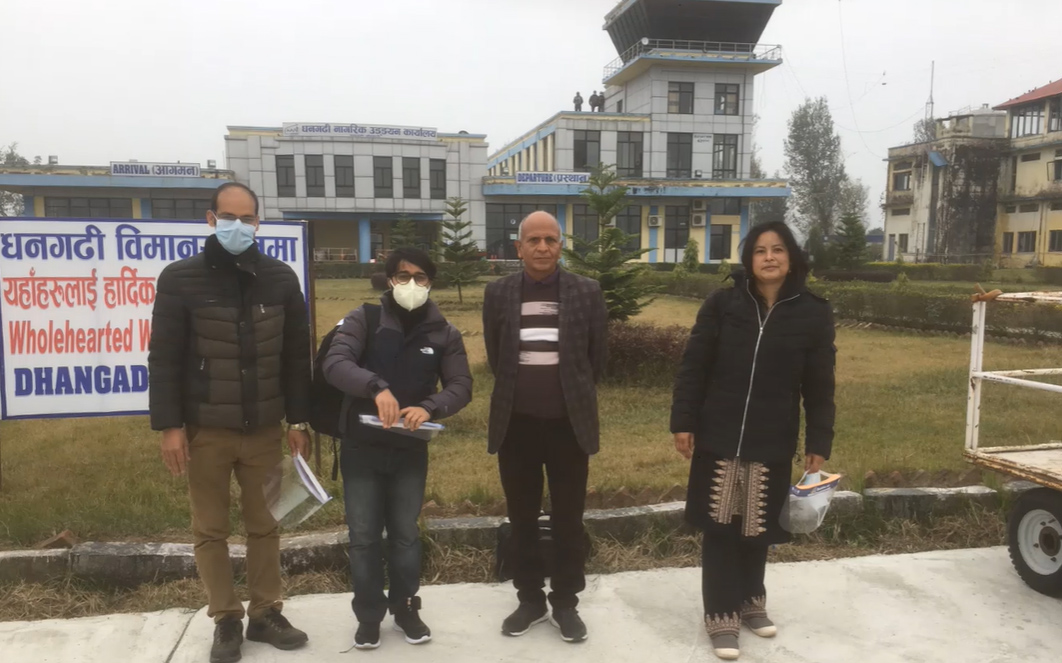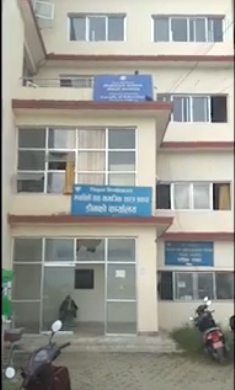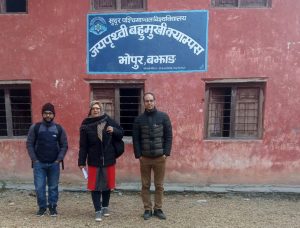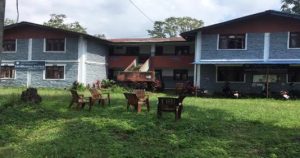Creating support centres is joint-learning

During the past few weeks, colleagues from Kathmandu University, Nepal Open University and Tribhuvan University have paid visits to schools in Kathmandu and toured remote areas in Nepal to meet students with disabilities and from marginalized groups. The reason for the visits is to learn from students what kinds of challenges they encounter as they access or study in higher education. The goal is to understand how the support centres, that will be created during the EATHEN project, can help students with diverse educational needs to continue their learning processes in higher education.

Ram Chandra Giri, who works as a Lecturer at Tribhuvan University, explains that support centre services can be developed only after information on the challenges that students face has been gathered. This is why a comprehensive database of the general challenges of students with disabilities and from marginalized groups will be created. The information is used to plan the support centres and their services, and to develop an inclusive environment in higher education institutions.
To gather information for the database, Mr Giri has visited special schools.
– We have noticed that visiting special schools and discussing with students has been helpful in the Kathmandu area, he explains,
– When I visited Bahira Campus Naxal, which is a school for deaf students, students highlighted the importance of teachers who understand their special needs as well as their need for proper support. For example, if certain communication skills are not the goal of learning, exams should not focus on such skills but give an equal possibility for all students to demonstrate their understanding of the subject matter.
Mr Giri visions that support centres can help build awareness of and create solutions for such challenges. The central location of one of the support centres in the premises of the Dean’s Office building of Tribhuvan University in Kathmandu will not only helps students access the centre and contact administration but also give visibility to the issue.
The challenges students encounter in the remote areas of Nepal in accessing and studying in higher education are many according to Ruma Manadhar, who is an Assistant Professor at Nepal Open University. She has met students, parents and campus chiefs in Achham, Baitadi, Bajhang, Bajura, Dadeldhura, Darchula, Doti, Kailali and Kanchanpur in the Far-Western province of Nepal.
– We have talked about several challenges such as financial problems, political party membership, harassment and bullying, child marriages, attitudes towards disabilities and geographic barriers, she says.

She has also observed that a lack of equipment, such as Braille books and walking sticks, prevents some students from joining a campus. Students have also emphasized the need for scholarships, and open and distance learning because the geographical features in certain areas make travelling to the campuses extremely challenging. To improve the access of female students to higher education, family support and social awareness as well as hostels that are only available for female students are extremely important.
– Many students I have talked with have a desire to continue their studies in higher education. If support centres are established in the right places with proper management and supervision, students with disabilities and from marginalized groups will have better possibilities to move ahead in their studies. In the long run, possibilities for applying for a part-time job might also improve.
The purpose of the support centres is to promote inclusion.
– If students are provided with the kind of learning material and learning environments they need, higher education in Nepal can become more inclusive. Teachers and administrative staff also need training so that they can facilitate the learning and studying of students with disabilities and from marginalized groups. Consequently, the curricula of higher education institutions has to be adjusted to address a range of disabilities, Ruma Manadhar says.

Nepal is a country of great diversity in terms of its people and terrain. The remote tours have surfaced very complex issues concerning equity of education also for the European partners to consider. Such issues include negative attitudes towards people from certain marginalized groups, which students may encounter when they search for a place to stay during their studies. How can you study if you are not welcome? This is why student hostels are needed. Efforts also need to be made to ensure that schools will welcome every student. A sense of belonging is extremely important as the interaction in the classroom may shape students’ self-expectations and motivation for continuing their studies.
Despite the complex challenges the Nepalese project partners have taken action to remove the obstacles preventing students with disabilities and from marginalized groups from accessing and studying in higher education. Their meetings and discussions with the stakeholders will continue.
In the picture at the beginning of this blog post are EATHEN project colleagues from Nepal Open University. The photo is taken on a field visit to the far-west province. From the right Assistant Professor Ruma Manandhar, Prof. Ram Chandra Paudel, Assistant Lecturer Prakash Paudel, Assistant Professor Khem Raj Joshi.
Authors:
Tuulia Kiilavuori, JAMK University of Applied Sciences
Ruma Manadhar, Nepal Open University
Ram Chandra Giri, Tribhuvan University
Maija Mäkinen, JAMK University of Applied Sciences
The EATHEN project
 EATHEN – Equitable access to higher education for students with disabilities and students from marginalized groups in Nepal is an Erasmus+ funded (Capacity building in higher education) project which develops management and practices in the higher education of Nepal to enhance equity in access to education and support during the academic careers. The project’s implementation time is 2019-2022. www.jamk.fi/eathen
EATHEN – Equitable access to higher education for students with disabilities and students from marginalized groups in Nepal is an Erasmus+ funded (Capacity building in higher education) project which develops management and practices in the higher education of Nepal to enhance equity in access to education and support during the academic careers. The project’s implementation time is 2019-2022. www.jamk.fi/eathen
Watch also our video greetings, presnting the development work of support centres: https://youtu.be/kenpwW_4PUE
